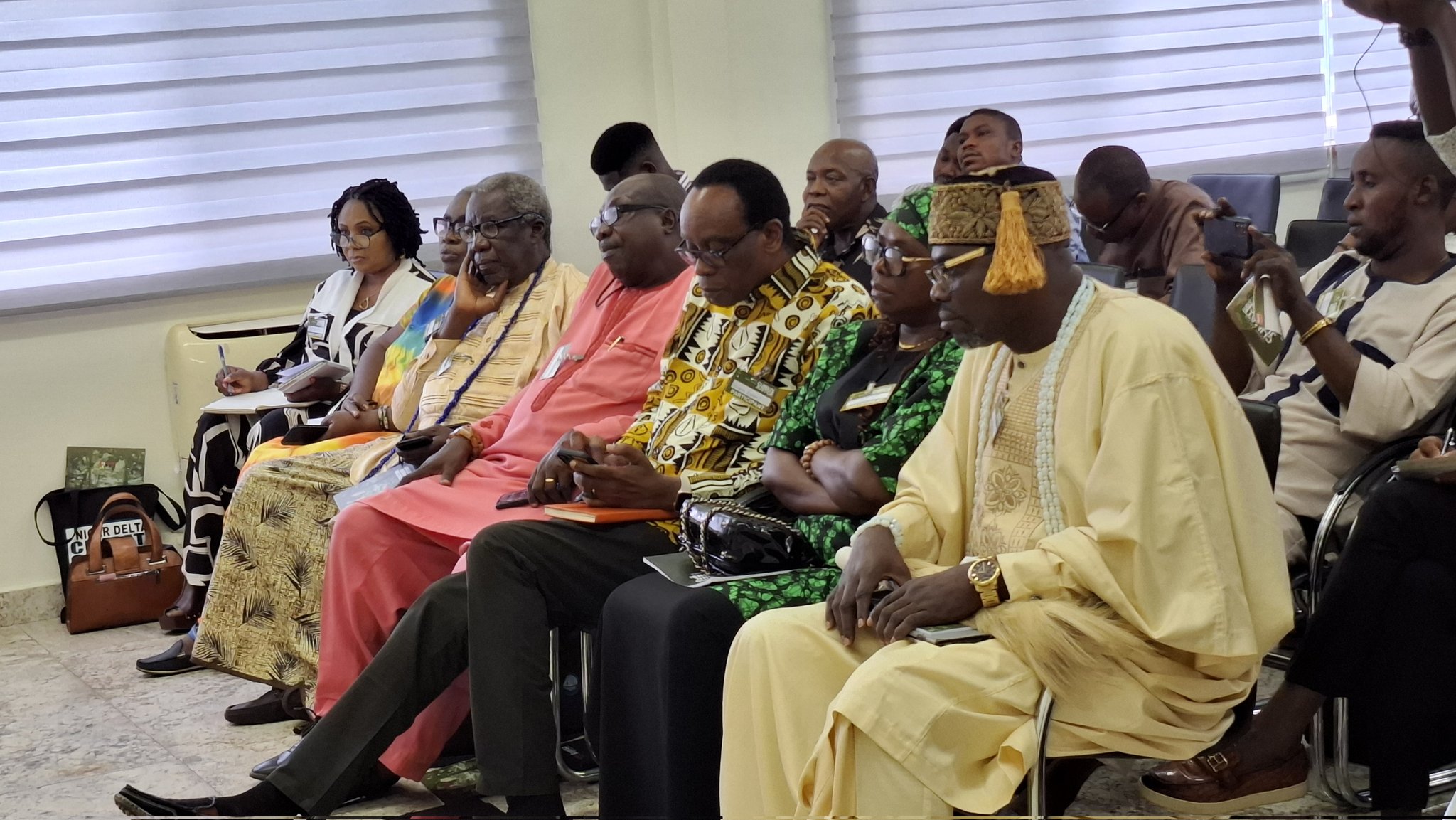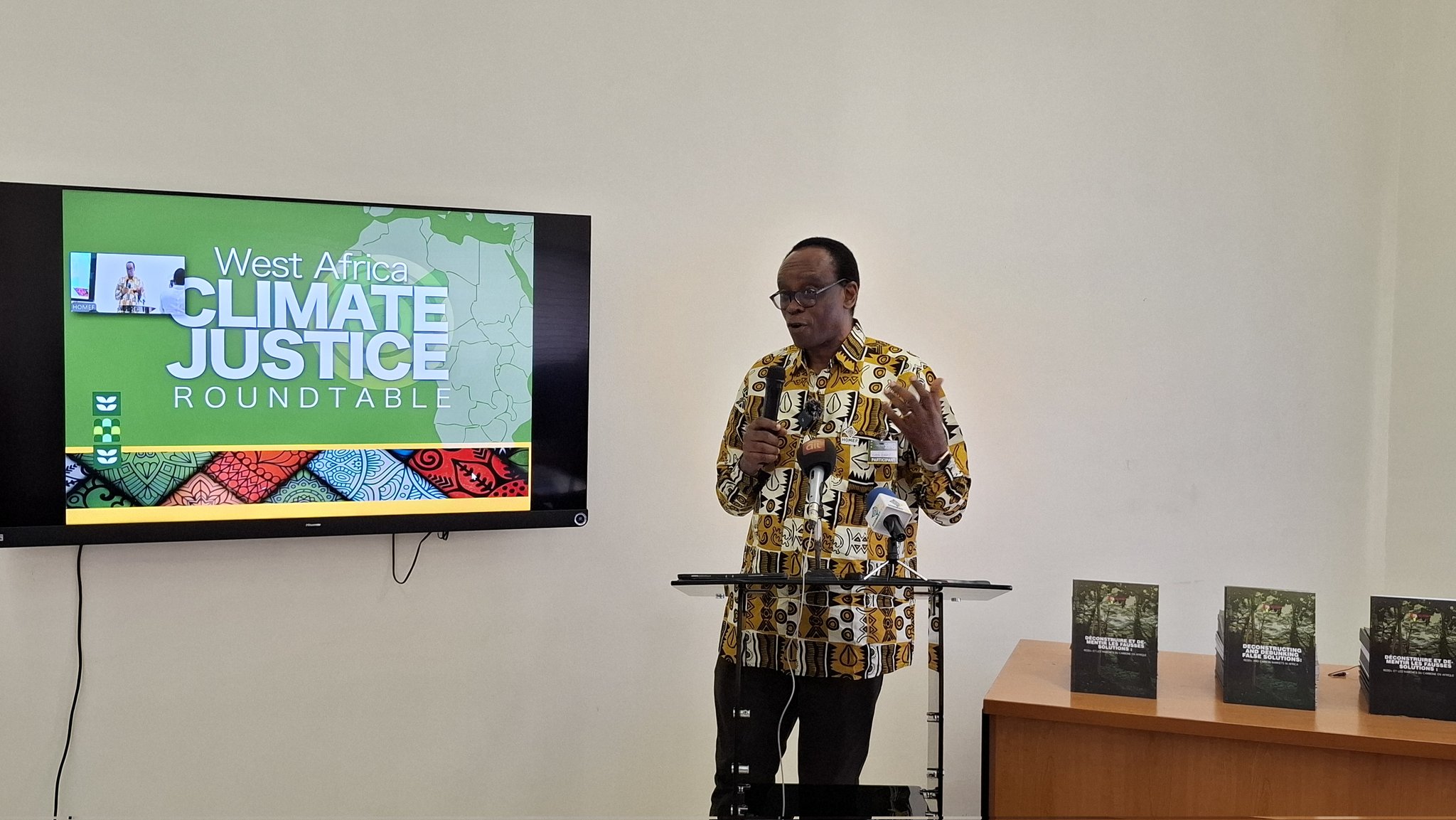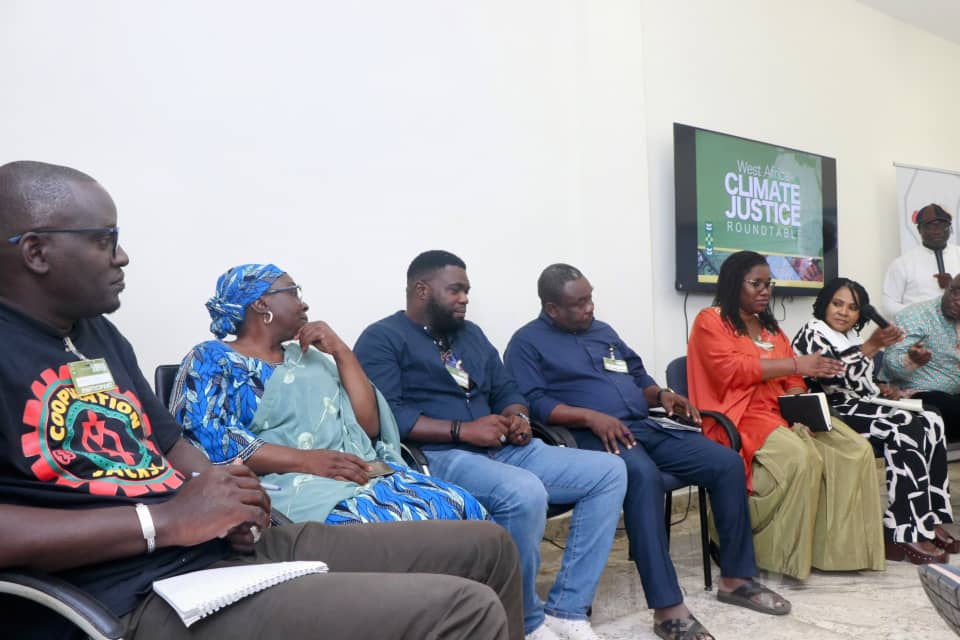Listeners:
Top listeners:
-
play_arrow
104.9FM Best rock music demo
-
play_arrow
Demo Radio Nr.1 For New Music And All The Hits!
-
play_arrow
Demo Radio Techno Top Music Radio
-
 play_arrow
play_arrow
Police Commissioner Launches Weapon and Riot Control Training for FCT Officers Democracy Radio
By Oluwakemi Kindness

West African climate justice activists are intensifying calls for the recognition and payment of climate debt not aid from industrialized nations.
Speaking on Tuesday at a regional roundtable in Abuja, stakeholders raised alarm over ongoing environmental exploitation that continues to endanger communities and ecosystems throughout the region.
Coming ahead of the 30th United Nations Climate Change Conference (COP30) in Brazil, they denounced false climate solutions such as carbon offset schemes and monoculture plantations, labeling them as modern instruments of land grabbing.
Renowned environmentalist and Executive Director of Health of Mother Earth Foundation (HOMEF), Dr. Nnimmo Bassey, described the current climate finance architecture as both unjust and insufficient. He criticized its failure to address the historic and ongoing damage inflicted by the Global North.
“The global climate negotiation system is deeply flawed,” said Dr. Bassey, pointing to the 2009 Copenhagen Accord, which shifted climate action from binding commitments to voluntary pledges. “This system no longer holds the major polluters accountable, while countries least responsible for emissions are left to bear the brunt.”

He cited Nigeria as a clear example of environmental injustice, highlighting the persistence of gas flaring, oil spills, and unchecked ecological degradation despite the country’s alignment with international climate agreements.
“If climate justice truly existed in Nigeria, gas flaring would have ended, oil spills would be cleaned up, and Niger Delta communities wouldn’t be left in toxic ruin,” he said. “We cannot speak of justice when oil has been burning for five years and the government does nothing.”
Dr. Bassey said in the Federal Capital Territory and beyond, such unregulated extraction is driving deforestation, pollution, and forced displacement.
From Togo, Kwami Kpondzo, Africa Coordinator of the Centre for Environmental Justice, warned that carbon markets represent a neo-colonial model that commodifies Africa’s nature for the benefit of wealthy nations.
“Climate justice in West Africa must challenge the commodification of nature,” Kpondzo stated. “Carbon markets turn our forests into ‘carbon sinks’ for rich countries, while ignoring the root causes of climate change—fossil fuel addiction and capitalist overproduction.”
He added: “These schemes are sold as solutions, but they are just another way to seize our land. Communities are losing access to forests and farmlands just so others can meet their targets on paper.”

During a country report session, delegates stressed that all West African countries are affected—whether through oil and gas drilling, mining for gold, phosphate, uranium, and bauxite, or expansive monoculture plantations. These industries, they argued, are accelerating deforestation, destroying biodiversity, and undermining rural livelihoods, particularly among coastal and agrarian populations.
A Call for Urgency and Unity
In response to these challenges, regional activists are building a united front across sectors including agroecology, land rights, women’s justice, and anti-extraction movements.
Through alliances such as the African Food Sovereignty Alliance (AFSA), activists say they are engaging with bodies like ECOWAS, the African Union, and global platforms including the upcoming COP30 in Brazil.
They expressed optimism that, achieving climate justice begins with acknowledging historical and ongoing injustices and ends with communities reclaiming their right to land, dignity, and ecological sovereignty.
Written by: Toyeebaht Aremu
#Agroecology #Carbon Market #Climate Justice #COP30 #DemocracyRadio #HOMEF
Similar posts
Copyright Democracy Radio -2024


